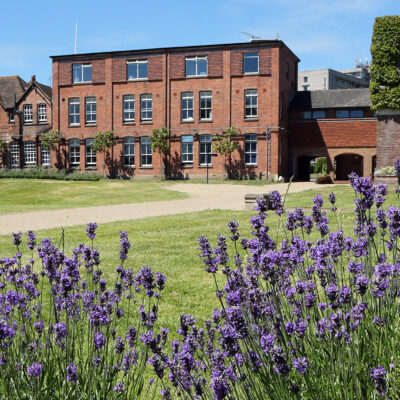A Head for 25 years, Mike Piercy is now an educational consultant and governor at two schools. Here, he looks at assessing when parents should intervene
How was your day, darling?’ the routine words on collecting from school as he clambers into the car. The daily, customary, ‘Good,’ doesn’t follow. There is a pause, a catching of breath, a sniff, then,
‘My teacher called me a disgusting elephant!’ rapidly followed by racking sobs.
‘Well, that’s absolutely disgraceful!’
Little Johnny doesn’t have the capacity, the voice to respond. The sobs subside on the way home, supper is served, homework done without complaint, a favourite bedtime story and he’s out for the count.
The parent, now armed with a second very large glass of white wine (not noticing it’s corked in haste to get to the computer) starts typing a ferocious email. Stopping just short of the expletive the email is, nonetheless, explosive. ‘How dare anyone speak to my son like that?’
The school’s reply comes the next morning. The truth is the teacher had called Johnny a ‘disruptive element’. He’d been sitting next to his best friend at assembly. They’d been poking and prodding the younger ones in front, spotted by Mr. Jones – aptly nicknamed ‘The Eagle’.
In years gone by if a child came home having been in trouble he would be in double trouble at home. To question the school was out of the question. We are all protective of our children, umbilically connected, so it is understandable for us to have difficulty separating the emotion from the data. It is the data and context which needs to be critically examined.
There will always be bumps in the road. Our children are not perfect. They will make mistakes, they will be spontaneous, they will come under the influence of the less scrupulous. An alternative, better course of action for this parent would have been to write asking what had happened that day.
So, when our children return from school telling a troubled story, what should we do? Teachers and schools don’t always get things right (the best schools will acknowledge this) but we sometimes do have to ask questions when our children come home with a worry. Dr. John Rae, a former Head of Westminster, used a great line when welcoming new parents to the school: ‘If you believe only half of the stories which come home from school; we in turn will believe only half of the stories which come to school from home.’
It is somewhat tongue in cheek but bears great wisdom and advice. Much has been written about the helicopter parent syndrome, the debate revolving around when and how much to intervene in school matters. In my view the key is knowing your children and being open to the idea they may not always get things right. Ask the school rather than tell.
Many years ago I remember the craze for Baby-G watches – a not inexpensive fashion item as much as a timepiece. A pupil ‘lost’ hers. We searched and searched but to no avail. She returned to school the following Monday with a new one. That, in turn, was lost. A week later she came to school with a third Baby-G. Where was the learning? Part of growing up is the baton of responsibility passing from parent to child, gradually removing safety nets as they learn to manage their own lives.
Mike’s book, Careering is available now with troubador.co.uk.
You can contact Mike at mikepiercy@hotmail.com
with your education-related queries.
You may also like
Myth Busters
We hear from ACS International School Cobham as the school celebrates its 50th anniversary, reflecting on how far it has come and setting the record straight on a few common misconceptions along the way From its origins as a school...
Added Value
Some vital aspects of education are not easy to measure, says former headteacher Mike Piercy Are we stumbling, blundering – even thundering – into a Wildean world? Oscar Wilde defined a cynic as someone ‘who knows the price of everything...
Meet the…Head
Ashley Currie shares what’s winning Ashford Schoolrecognition in the national press Who or what has had the greatest influence on you as an educator?My greatest influence was my primary school headmaster, Mr Abrahams. He was a very kind man and...











